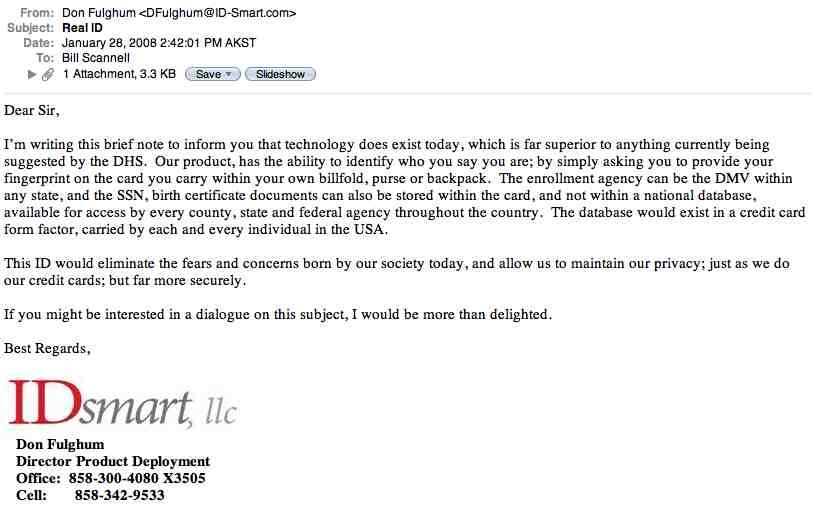First Reports Of What It’s Like Flying Without ID Arrive
Travelers who willingly refuse to show ID to the Transportation Security Administration are now barred from flying. The new rule went into effect over the weekend. Now, in order to board the plane after forgetting one’s driver’s license, it seems you have to answer questions about your political party affiliation and previous addresses. TSA’s press release said that “cooperative passengers” without ID may be subjected to additional screening protocols, including enhanced physical screening, enhanced carry-on and/or checked baggage screening, interviews with behavior detection or law enforcement officers and other measures. It turns out that “and other measures” include questions about political party affiliation and other questionable invasions of privacy, according to an article that appeared on Consumerist.
Finally satisfied that I didn’t have ID, Laurie took my boarding pass and went away. She came back a few minutes later having photocopied it, and also had an affidavit that she requested I sign. It asked for my name and address, and stated in small print at the bottom that I did not have to fill it out, but if I didn’t I couldn’t fly. It also said that if I choose to fill it out and then provided false info, I would be in violation of federal law.
After filling out the affidavit, Laurie called a service to verify my address. The service needed me to then correctly answer three questions about myself, which Laurie relayed to me. The first was my date of birth, the second was a previous address (which I only got right on my second try), and the third was “You are registered to vote. Which political party have you registered with?” I got all three right, and only then did Laurie clear me to go through security.
As there is no published law governing what conditions the TSA has now placed upon individuals who have the temerity to travel without ID, only by reports such as these will we be able to ascertain what’s playing on the screen today at our nation’s security theater. The cost of admission is but your civil liberty and common sense. Contact us with your story.
 The Alaska state legislature
The Alaska state legislature 